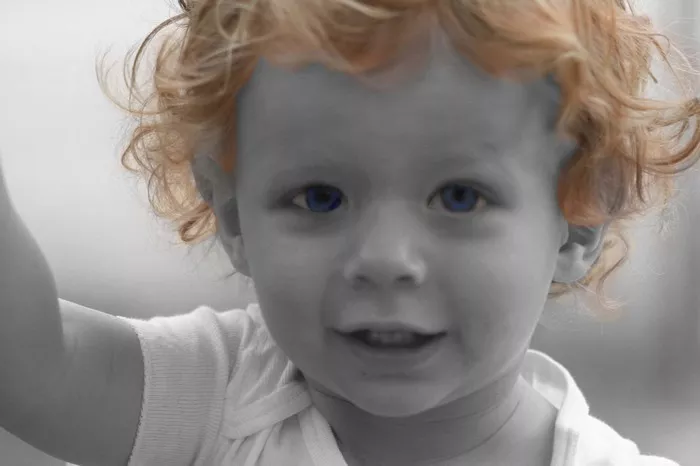1. Reassurance and Safety:
Caring for a three-month-old with a cold can be a worrisome experience for parents, but it’s essential to start with calming reassurance. Remember, colds are common in babies and usually resolve on their own. However, being vigilant for red flags is crucial. If you notice any of the following symptoms, seek immediate medical attention:
Difficulty breathing
High fever (over 100.4°F)
Bluish or gray skin
Refusal to feed
Signs of dehydration
No matter how mild the symptoms may seem, it’s always best to consult a pediatrician for guidance, especially with infants. Trust your instincts and don’t hesitate to reach out for professional help if you’re concerned about your baby’s health.
2. Practical Care Tips:
Symptom Relief:
Nasal Suction: When your baby’s nose is congested, nasal suction can help clear mucus and improve breathing. Use a bulb syringe or nasal aspirator designed specifically for infants. Gently insert the tip into your baby’s nostril, squeeze the bulb, and release it while still in the nose to suction out mucus. Remember to clean the syringe thoroughly after each use to prevent the spread of germs.
Humidifier or Vaporizer: Adding moisture to the air can help relieve congestion and ease breathing. Place a cool-mist humidifier or vaporizer in your baby’s room, especially during sleep. Ensure that it’s cleaned regularly to prevent the buildup of mold and bacteria. Keep the device out of reach to avoid accidents.
Warm Bath or Shower: A warm bath or shower can provide soothing comfort for your baby while helping to loosen congestion. Let the warm water create steam in the bathroom, or carefully bathe your baby in warm water. Use gentle strokes to wash their body and allow them to relax in the warm environment.
Warm Liquids: If your baby is breastfeeding, continue nursing as usual. Breast milk provides essential nutrients and antibodies that can help strengthen your baby’s immune system. If you’re formula feeding, offer warm water between feedings to keep your baby hydrated and provide comfort.
Comforting Measures:
Positioning: Elevating your baby’s head slightly while they sleep can help ease congestion and promote better breathing. You can achieve this by placing a rolled towel under the head end of the crib mattress or using a wedge-shaped pillow designed for infants. Ensure that your baby sleeps on their back to reduce the risk of Sudden Infant Death Syndrome (SIDS).
Gentle Massage: Gently massaging your baby’s chest and back can help relax them and alleviate discomfort. Use light pressure and circular motions to stimulate circulation and promote relaxation. Avoid applying too much pressure or using essential oils without consulting your pediatrician.
Medication:
Avoid Over-the-Counter Medications: Over-the-counter cold medications are not recommended for babies under six months of age due to the risk of serious side effects. These medications can potentially cause harmful effects, including breathing difficulties and drowsiness. Always consult your pediatrician before giving any medication to your baby.
Doctor-Approved Remedies: If your pediatrician recommends it, saline drops or nasal sprays can help relieve nasal congestion in infants. These products work by thinning mucus and making it easier for your baby to breathe. Follow your doctor’s instructions carefully and avoid using saline drops excessively, as they can irritate the nasal passages if overused.
Conclusion:
Caring for a 3-month-old with a cold requires patience, vigilance, and gentle care. By providing reassurance, implementing practical tips for symptom relief, and following your pediatrician’s guidance, you can help your baby feel more comfortable and recover from their cold safely. Remember to prioritize your baby’s health and well-being, and don’t hesitate to seek medical attention if you have any concerns. With proper care and attention, your baby will soon be back to their happy, healthy self.
FAQs
Can a 3 month old fight a cold?
Absolutely, though their immune systems are still developing, infants can fight off colds. However, they may struggle more than older children or adults. Keeping them comfortable, hydrated, and ensuring they get enough rest can help their bodies combat the illness.
What can I do for my 3 month old sick?
For a 3-month-old with a cold, focus on keeping them comfortable. Use a humidifier to ease congestion, offer frequent breastfeeding or bottle feeding to keep them hydrated, and use saline drops to clear nasal passages. Always consult a pediatrician for guidance on medications or if symptoms worsen.
What is too cold for a 3 month old?
A 3-month-old baby is sensitive to temperature extremes. Generally, a room temperature between 68-72°F (20-22°C) is comfortable for them. Ensure they’re dressed appropriately for the weather when outdoors, and avoid exposing them to temperatures below 60°F (15°C) for prolonged periods without adequate clothing and shelter.
Related topics:
- What Age Does SIDS Stop?
- How To Use Little Remedies Saline Drops?
- Is My Baby’s Cold Nose a Sign of Being Cold?


